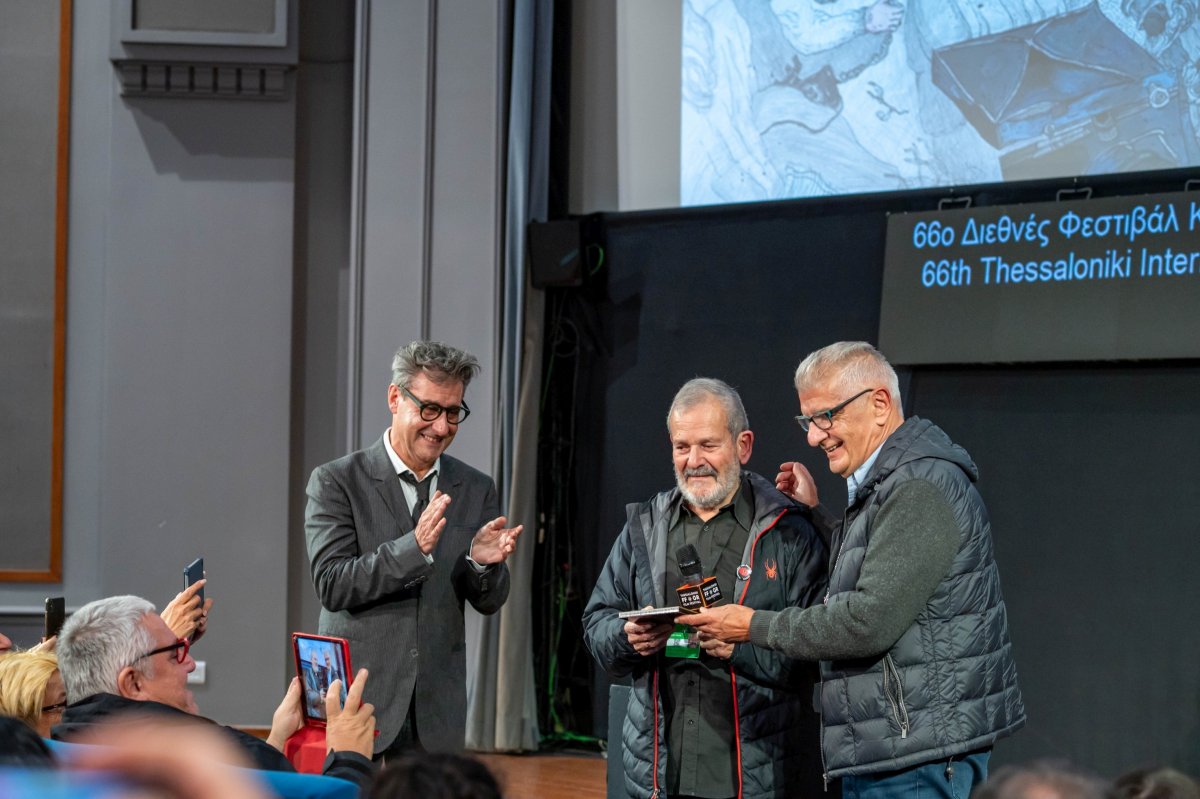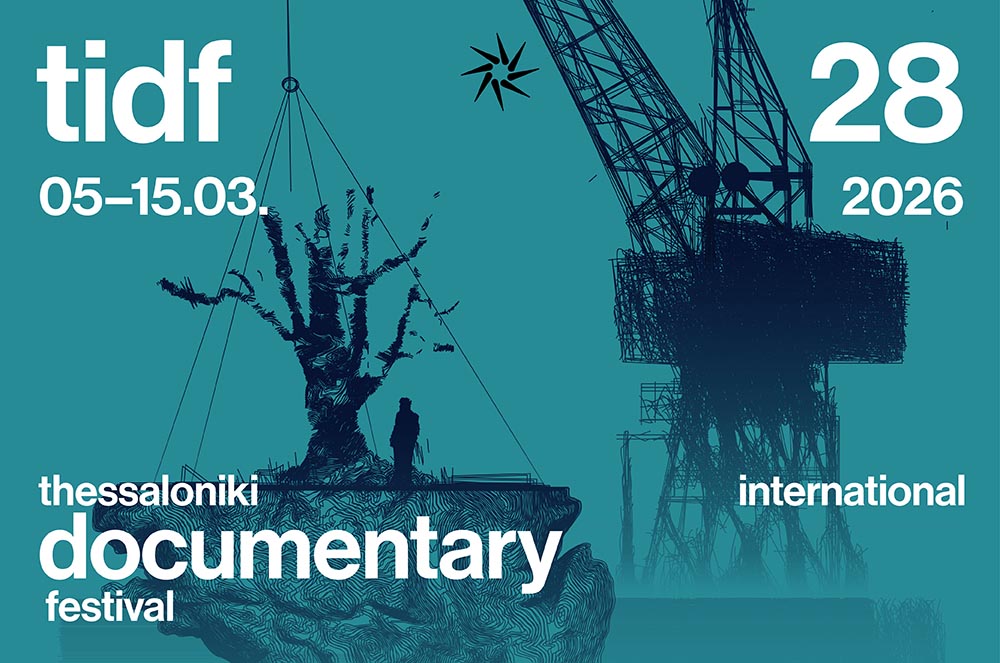In a heartfelt event, the 66th TIFF honored the film critic Ninos Phenek Mikelides for his lifetime contribution to cinema on Sunday, November 2nd, at the Pavlos Zannas theatre. At the same time, Mr. Mikelides prefaced Sylvain Chomet’s film A Magnificent Life, screened as part of the spotlight to Marcel Pagnol hosted by the 66th Thessaloniki International Film Festival.
First, Orestis Andreadakis, Artistic Director of the Festival, took the floor. "Marcel Pagnol is one of the most important auteurs of European cinema, though not very well known in Greece. On the occasion of the screening of A Magnificent Life by Sylvain Chomet, a film depicting the life of Marcel Pagnol, we decided to invite someone with a profound knowledge and deep love for the history of European, and particularly French, cinema. He has studied it, has hosted tributes and has written countless articles. We invite him to give us a short introduction so that we can get re-introduced to Marcel Pagnol. This man is the great film critic Ninos Phenek Mikelides."
“I am glad that there are so many young people who want to get acquainted with a director who is truly important. It has been almost a hundred years since the 1930s, when Marcel Pagnol was at the peak of his career, and yet he was relatively unknown for a certain period. At that time, Jean Renoir, Marcel Carné and René Clair had known greater success. Marcel Pagnol was less celebrated, despite making films that spoke to the heart and soul of ordinary French life. He was a man of the countryside, who knew these people intimately and embodied the very spirit of that way of life. In his films, you sense the presence of nature, the flow of water, the taste of food, and the voices of people speaking their mother tongue. In fact, he also used local actors in addition to the well-known professionals, such as the star of the time, Raimu," Ninos Phenek Mikelides said.
Then, Ninos Phenek Mikelides added: "His trilogy, with the films Marius, Fanny and César, is wonderful. To make each film more lively he chose local actors who used the local dialect. He himself was involved in literature and theatre and had a deep understanding of the art of dialogue. The dialogues in his films are rich and bring you closer to the characters. Pagnol deals with human beings as well as with the human condition. André Bazin, who was writing in Cahiers du cinéma when the Nouvelle Vague emerged, was the first to bring Pagnol back into the spotlight. I would say that Éric Rohmer’s films also share something of the vitality of people and of everyday life, portraying problems that continue to resonate even today, just like the films of Marcel Pagnol. I hope you enjoy the two films in the tribute and I hope that someday the other films by this great auteur will be screened, because they are worth watching again".
Then, Mr. Andreadakis passed the baton to Zinos Panagiotidis, head of the distribution company Rosebud 21. "I didn’t come here in my capacity as the film’s distributor, just as Ninos’s colleagues haven’t come in their capacity as journalists. For today we are all here to honor Ninos, in a grand surprise event from the Festival. I was asked, as the eldest active distributor, to award a plaque of honor to Ninos, the eldest active film critic, for his entire contribution to cinema", Zinos Panagiotidis said, immediately followed by extensive and warm applause from the audience.
“Thank you very much. Many of you love cinema as much as I do, and I hope that one day you will also receive a plaque because you support what you love,” Mr. Mikelides stated with evident emotion. Mr. Panagiotidis took the floor again, and spoke about Ninos Phenek Mikelides’ journey in the field of film review: “I have known Nino for fifty years, since the democratic transition in Greece. He was a young film critic; I was a program manager and head of the distribution office. He has been the same since then, as he maintains the same passion and the same spirit even now. He created the Panorama of European Cinema and brought major figures of cinema to our country. He continues to visit film festivals, watch films, and attend press conferences,” Mr. Panagiotidis stated.
As for the film critic's profession, Mr. Mikelides said that "it makes perfect sense to watch a film again, after 20 or 30 years, whether we liked it or not, in order to see if what we wrote at the time is true within us. The more frequently we revisit films, the better, as it allows for renewal. For example, I have always liked Godard and some of his films, but Breathless didn't move me that much; at that time other auteurs, like Antonioni, moved me more. But when I watched Breathless again after 20 years, I liked it better. Certain films I once considered masterpieces, I will possibly reconsider once I watch them again. This is the case with Marcel Pagnol's films: no one knew that they would be revived today and that they would be watched again to this day. The Film Archives also helped a great deal with their specials. I first saw Marcel Pagnol at the London Film Archive and later at the French Cinémathèque. It is therefore important not only to watch new films, but also to revisit the oldies," Mr. Mikelides concluded.















